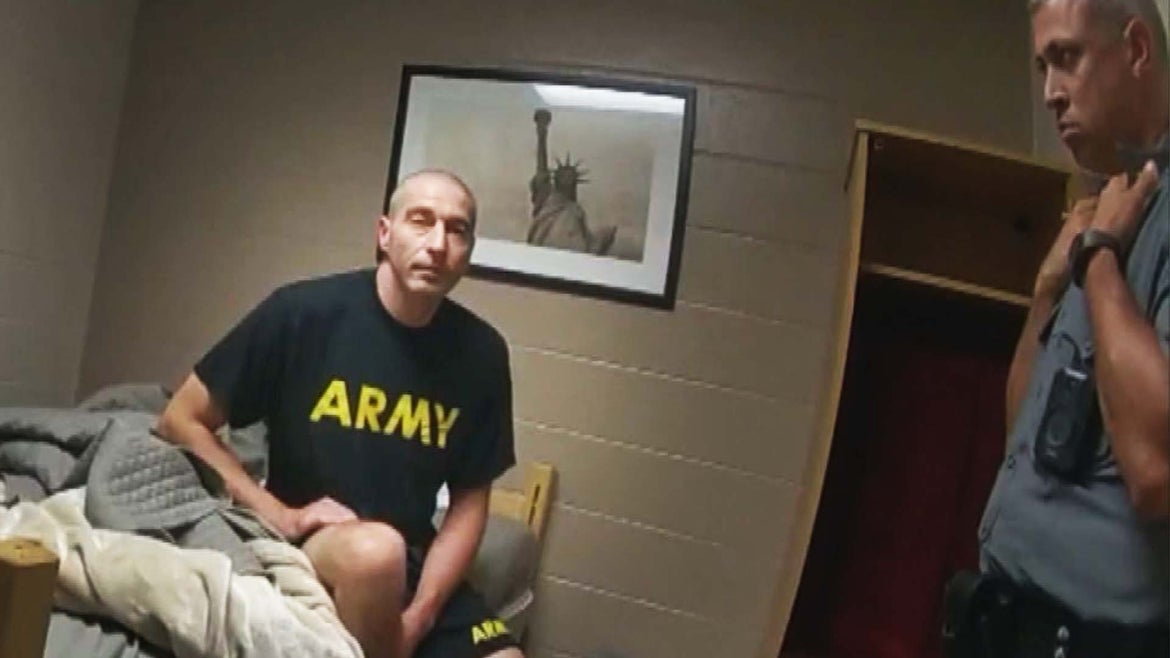Army reservist Robert Card, who carried out the worst mass shooting in Maine history, had massive brain injuries, possibly caused by military blasts, new lab tests show. The Army says the results are "concerning."
New scans of the brain of Army reservist Robert Card, who carried out the worst mass shooting in Maine's history, show extensive brain damage consistent with exposure to repeated military blasts, according to findings released this week by his family.
The recent lab tests were conducted by Boston University's Chronic Traumatic Encephalopathy Center, which did so at the behest of Maine's state coroner.
The lab found “significant degeneration" in tissues that connect brain signals, and that in some places, those tissues were completely gone. The brain scan did not show CTE damage, a disease usually caused by repeated blows to the head, the report said.
Instead, the center found the profound brain damage was consistent with injuries suffered by soldiers exposed over and over to military blasts, its findings stated.
The facility is one of the leading researchers into CTE, which has been diagnosed in combat soldiers and professional athletes, as well as young amateur players of sports including football, ice hockey and soccer.
In conclusion, the report said, “While it is unclear whether these pathological findings are responsible for Mr. Card’s behavioral changes in the last 10 months of life, based on our previous studies, it is likely that brain injury played a role in his symptoms."
Card was a longtime reservist who was an instructor in hand grenade use and had experienced thousands of low-level blasts. He had not seen combat duty, the report said.
The report was publicly released Wednesday by Card's relatives.
The Army later released a statement saying it found the results troubling.
The findings "indicating brain injury are concerning and underscore the Army’s need to do all it can to protect soldiers against blast-induced injury," the statement said.
The military branch also said it will convene Army leaders to "determine what additional actions, investments, and research may be needed to best protect soldiers from blast related injury in the future."
In October, Card opened fire at a bar and a bowling alley, killing 18 people and wounding 13 in Lewiston. His body was found days later with a self-inflicted gunshot wound.
His family, friends and colleagues had become increasingly concerned about the 40-year-old reservist, whose behavior became extremely erratic and bizarre, they said. He heard voices, had paranoid delusions and was threatening retaliation against those he wrongly believed were spreading vile rumors about him, they said.
Fellow reservists testified Thursday before a special state committee examining the shootings. They said that in the last year of Card's life, the cadet instructor had gone from being a "consummate professional," to exhibiting such alarming behavior they had called state police to come speak with him in July.
That same month, he was committed to a military hospital for two weeks of psychiatric evaluation. He had threatened fellow soldiers and broke down weeping, saying he was hearing voices that wouldn't stop, his family said. He was prescribed lithium but stopped taking it after his release, his sister said.
His relatives said in this week's statement that they had decided to make the test results public to help others and to hopefully stop future violence.
“We want to begin by saying how deeply sorry and heartbroken we are for all the victims, survivors and their loved ones, and to everyone in Maine and beyond who was affected and traumatized by this tragedy," the statement said.
“We are hurting for you and with you, and it is hard to put into words how badly we wish we could undo what happened," the family said. "We are releasing the findings of Robert’s brain study with the goal of supporting ongoing efforts to learn from this tragedy to ensure it never happens again.”
Related Stories






